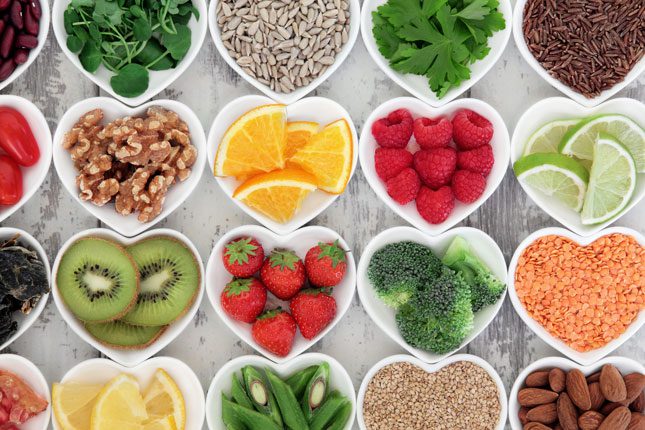By Cristina Utti M.F.A., M.A.
It is a well-known fact that drug and alcohol abuse causes havoc on the body.
Most drug treatment centers incorporate 12-step programs, counseling, and addiction education into the daily schedules of their clients. These approaches serve the psychological and emotional needs of the client and are a necessary part of recovery. However, the physical needs of the client are also important and should not be overlooked. The most successful recovery programs are those that take a holistic approach to recovery, feeding the mind, body, and spirit.
All too often, we are told of all of the good foods we should eat. We’re also given lists of foods to avoid. But sometimes these lists conflict, making it hard to know what to eat. Let’s take a look at the foods a recovering addict should try to avoid, and why. Numerous studies have shown that most people with addiction suffer from malnutrition and biochemical disorders.
The following are common ailments among those who have heavily used drugs and/or alcohol.
- Digestive problems such as Leaky Gut Syndrome and not absorbing nutrients properly.
- Hypoglycemia (low blood sugar), which causes a variety of symptoms such as depression, anxiety, and panic attacks.
- Nutritional deficiencies of amino acids, vitamins, and minerals.
These ailments can be addressed by eating the proper foods and avoiding foods that can make matters worse. We all know that natural foods such as fruits vegetables, legumes, and nuts are good for us.
Here is a list of the top foods to avoid:
- Additives and preservatives – Although these are not foods, they are in a lot of foods. They disrupt digestion and create intestinal changes which permit oversized molecules into the bloodstream. This overworks the liver, which is probably already damaged, and disrupts the immune system, making it more difficult to combat germs. Fresh, raw foods are packed with natural enzymes. Processed foods have no enzymes left, are more difficult for the body to process, and put a damper on the body’s digestive enzyme reservoir. Not only are additives and preservatives bad for the digestive system, but many of them have also been found to cause hyperactivity and learning difficulties in children. Check the labels on the foods you buy. These are a few of the additives to avoid: aspartame (artificial sweetener), MSG (monosodium glutamate), BHA (butylated hydroxyanisole) and BHT (butylated hydroxytoluene)—these are added to cereals, chips, cookies, and more, to preserve freshness. They have cancer-causing agents. Phosphates are another harmful additive. These are found in meats, baked goods, soft drinks, and fast foods. An international report has claimed that foods with phosphates should be labeled as bad for your health. Phosphates are known to cause heart disease.
- Sugar – People in recovery often crave sugar because it provides a temporary relief from low blood sugar. Consuming refined sugar only worsens matters because it provides no nutritional value and depletes the body of vitamins and minerals. Sugar comes in many forms and is found in many foods. Check labels for words ending in –ose, as such as dextrose, sucrose, zylose, galactose, lactose, ribose, and maltose. Other words for sugar are: sorbitol, sucanat, erythritol, diglycerides, disaccharides, glucitol, hexitol, inversol, isomalt, mannitol, xylitol, glucosamine, maltodextrin, malts, malted barley, evaporated cane syrup, sorghum, and high fructose corn syrup. Do not replace sugar with artificial sweeteners, as these are also detrimental to your health. Try to replace sugar with natural sweeteners such as raw honey, molasses, raw cane sugar, and pure maple syrup.
- White Flour – White flour is highly processed, and the body breaks it down as if it were processed sugar. White flour can easily be replaced in the diet by choosing whole grains.
- Caffeine – Walk into any NA or AA meeting, and you will see plenty of people with a cup of coffee. If you cannot quit caffeinated beverages totally, consume them in moderation. Caffeine stimulates the adrenal glands and can lead to exhaustion, depressed immune system, low blood pressure, dizziness, lightheadedness, or blacking out when standing up. Women should be extra cautious of caffeine consumption because it depletes calcium absorption, which can lead to osteoporosis.
- Fats – Fats have often gotten a bad rap. The fats to avoid are hydrogenated and refined fats. These are found in margarine, shortening, and refined or hydrogenated oils. Saturated and unsaturated fats are good for the body. These can be found in coconut oil, olive oil, butter, and vegetable oils such as sunflower, flax seed, and corn oils. These fats help us feel full longer and aid in stabilizing blood sugar.
To put it simply, avoid processed and refined foods. Check labels and become a more mindful consumer. Your body will thank you for it, and your recovery will be more stable. What we put into our bodies has a direct effect on our mood. For those looking into a drug treatment center, check to see if they have a nutritionist who can assist you in eating more mindfully.
Contact us today at 806.307.2003 and let our skilled professionals walk you through the steps that lead to recovery.








Comments are closed.